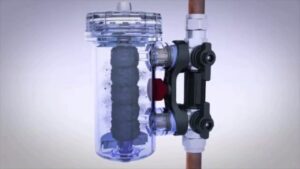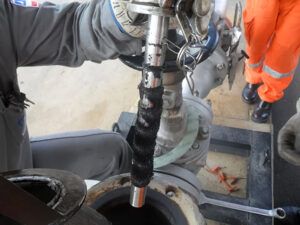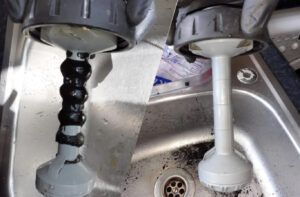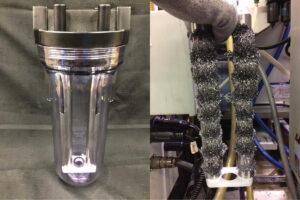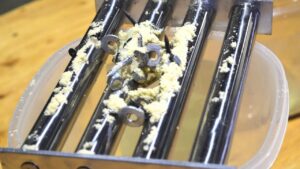As an integral part of modern heating systems, magnetic filters trap debris and extend the lifespan of boilers. But how often should you clean these handy devices?
Through my experience managing heating systems, I’ve found that while manufacturers provide general guidelines, the ideal cleaning interval depends on your equipment’s age and type.
In this comprehensive guide, as a professional magnetic filter manufacturer, I’ll share key insights on:
- Why magnetic filters are vital for heating systems
- When to clean based on filter styles
- Step-by-step cleaning instructions
- Professional maintenance services
I aim to help homeowners and property managers understand best practices to preserve their investment in heating equipment. Read on to make informed decisions!

Why Regular Magnetic Filter Cleaning is Essential
Before jumping into maintenance schedules, it’s worth understanding why magnetic filters matter in the first place.
These ingenious devices have strong permanent or electromagnetic magnets inside. As water circulates during boiler operation, the magnets attract stray iron particles. Over time, this debris builds up on filters instead of circulating freely.
Without magnetic filtration, loose iron deposits would gradually coat heat exchanger components and pipes. The results? Reduced efficiency, high energy bills, and eventual breakdowns.
By capturing these contaminants, a clean filter ensures:
Lower Energy Consumption: Heat transfers properly so less fuel is wasted.
Enhanced Safety: Removes flammable iron oxides to prevent combustion inside the boiler.
Greater Longevity: Critical parts like pumps and heat exchangers endure less internal abrasion when debris is filtered out. Replacement needs diminish.
Now let’s move on to determining ideal service intervals.
Cleaning Frequency Based on Filter Type
While manufacturers publish general guidelines, I’ve learned optimal timing depends on:
Age of Your Heating System
- New systems: More debris circulates during initial weeks. Check filters monthly after installation.
- >5 years old: Annual cleaning is fine unless you encounter problems.
- >10 years old: Biannual maintenance prevents operational issues.
Filter Position in System
- Before boiler: Traps debris generated during corrosion. Clean every 6 months.
- After boiler: Catches stray particles. Annual cleaning works.
Beyond position, the style and size of your magnetic filter impacts maintenance needs:
Internal Magnetic Filter
This style has magnets inside the housing allowing direct contact with water flow. It requires:
- Draining the system
- Removing magnet core
- Scrubbing housing
- Reinsertion
Due to involved access, clean just once annually unless inspections reveal excess buildup.
External Magnetic Filter
For this style, magnets are outside the canister without contacting water directly. Quicker cleaning steps are:
- Closing inlet valve
- Opening drain port
- Detaching external magnet
- Reattaching magnet
As isolation from water streamlines maintenance, biannual servicing ensures optimal debris capture.
Large Magnetic Filter Units
Oversized filters for commercial structures or multifamily setups permit longer operation before losing effectiveness. Schedule cleaning every 8-12 months depending on factors like:
- Number of occupants/debris generated
- Water hardness and iron content
Step-by-Step Guide to Safely Cleaning Magnetic Heating Filters
Once familiar with the “why” and “when”, it’s time to tackle the “how”.
Here’s a foolproof method to refresh magnetic heating filters without professional help:
Prepare Your Workspace
Lay down waterproof mats around the filter to catch spills during cleaning. Shut OFF the boiler and heating system to prevent scalding accidents or damage if water leaks.
Allow components to fully cool before handling filters. Have a bucket and cleaning supplies ready.
Remove Filter Unit
Locate isolation valves on inlet and outlet pipes connected to your magnetic filter. Turn both CLOSED.
Use the filter’s bleeder valve or air vent to relieve pressure. Unscrew the lid or housing and detach the internal basket or core gently. Dispose of drips from filter in a bucket.
Scrub Contaminants Away
Use a soft brush, sponge and mild detergent to thoroughly clean filter housing and internal magnetic components. Rinse away grime under running water until water runs clear.
Ensure no debris remains before returning parts to the housing. Wipe down O-rings or sealing gaskets if present.
Reassemble Filter
Replace all filter elements in the original sequence. Hand tighten the lid or end caps first. Finish with light torque using the designated filter wrench to avoid damage.
Restore inlet valve openings first, then outlet valves to permit smooth water flow. Inspect for several minutes to ensure no leaks are visible before restarting your boiler.
And finally, reset your pressure gauge to the upper safety limit. Bleed radiators to purge any remaining air after servicing magnetic filters.
Why Professional Cleaning Has Benefits Too
For households lacking the motivation for annual DIY heating filter maintenance, delegating this tediously physical task to HVAC companies makes sense.
Technicians bring extensive practical knowledge from servicing equipment in diverse homes. Their diagnostic eye spots early damage you might miss.
Beyond cleaning, professionals also:
- Inspect seals, valves and internal components
- Assess filtration capability
- Offer custom recommendations like upgrades to higher capacity or efficiency models when appropriate.
Certified technicians invest in specialized tools to handle fragile housing and powerful rare earth magnets. They’ll also correctly dispose of corrosive debris and waste oil or coolant.
While self-service gives you bragging rights, companies help busy homeowners prevent problems through proactive care.
Check if your equipment supplier offers discounted annual service contracts. Packages blend heating system inspection, tuning and component cleaning at attractive bundled pricing.
Final Thoughts
Installing magnetic filters fortifies heating systems against premature breakdowns and inefficiency. Like every appliance, filters require periodic refurbishing.
Homeowners able to invest moderate physical exertion can maintain their own units. For those with busy lifestyles, reputable HVAC contractors provide professional cleansing and holistic system checks.
Remember to adjust cleaning frequency based on age, style, positioning and usage intensity factors highlighted earlier. Stay proactive with heating filter maintenance every 6-12 months.
Taking this small step extends comfort and savings from boiler systems over their lifespans. Have any lingering questions? Get in touch and I’ll offer tailored guidance about your heating equipment.
